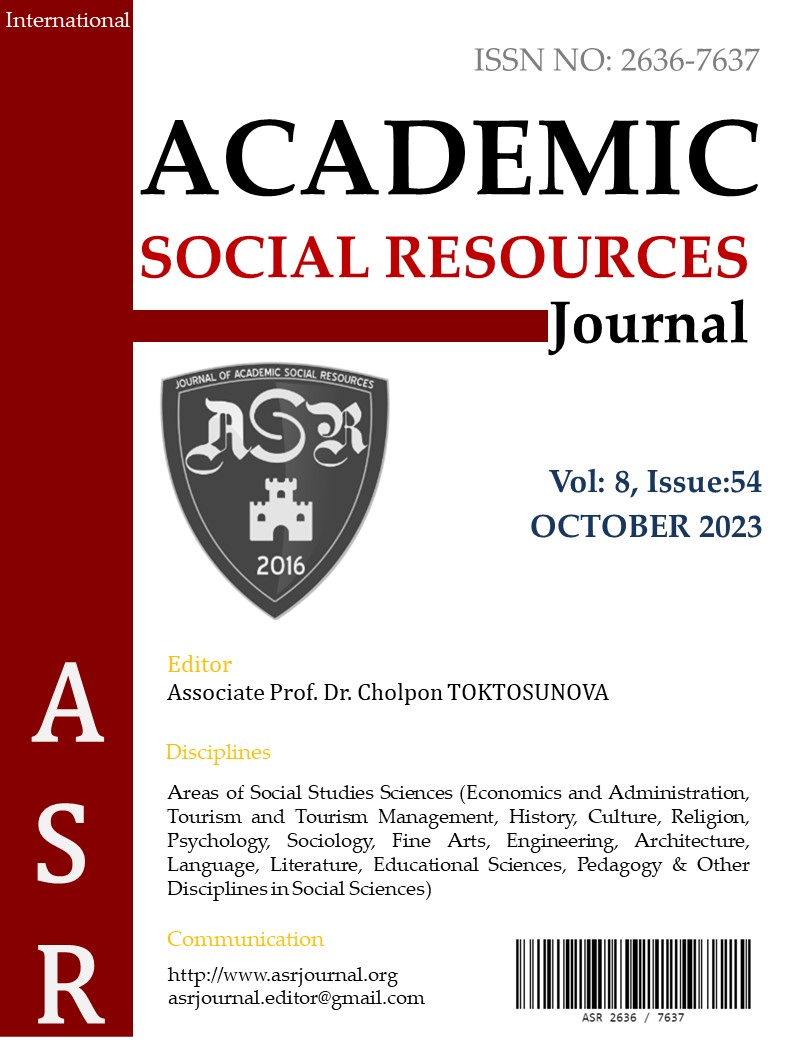Author :
Abstract
|
Bu çalışmanın amacı eğitsel ortamların tasarımı ve öğrenci merkezli öğretime yönelik öğretmen görüşlerinin değerlendirilmesidir. Bu çalışmanın yöntemi belirlenirken nitel araştırma tekniklerinden fenomenoloji deseni tercih edilmiştir. Bu kapsamda kolayda örnekleme yöntemi ile araştırmaya 13 öğretmen dahil edilmiştir. Veri toplama aracı olarak yarı yapılandırılmış 3 sorudan oluşan bir görüşme formu tercih edilmiştir. Ulaşılan veriler içerik analizi ile değerlendirilmiştir. Çalışmanın bulgularına göre, öğretmenlerin öğrenci merkezli öğrenme deneyimlerini desteklemek için kullanılan farklı stratejileri ve yaklaşımları yansıtmaktadır. Bu stratejiler, öğrencilerin öğrenme tercihlerini ve güçlü yönlerini anlama, öğrenci ihtiyaçlarını kişiselleştirme, çeşitli kaynaklara erişim sağlama, öğrenci özgüvenini artırma, değerlendirme araçlarını çeşitlendirme, sınıf içi aktiviteleri çeşitlendirme, öğrencilere katılım fırsatları sunma ve öğrencilerin benzersizliğini kabul etme amacı taşır. Bu yaklaşımlar, öğretmenlerin öğrenci merkezli öğrenmeyi desteklemeye yönelik çeşitli stratejileri benimsediklerini ve öğrencilerin öğrenme deneyimlerini daha etkili ve anlamlı hale getirmeyi amaçladıklarını göstermektedir. |
Keywords
Abstract
|
The aim of this study is to evaluate teachers' views on the design of educational environments and student-centered teaching. While determining the method of this study, phenomenology design, one of the qualitative research techniques, was preferred. In this context, 13 teachers were included in the study with convenience sampling method. A semi-structured interview form consisting of 3 questions was preferred as a data collection tool. The data obtained were evaluated by content analysis. According to the findings of the study, it reflects different strategies and approaches used by teachers to support student-centered learning experiences. These strategies aim to understand students' learning preferences and strengths, personalize student needs, provide access to a variety of resources, increase student confidence, diversify assessment tools, diversify classroom activities, provide opportunities for student engagement, and acknowledge students' uniqueness. These approaches suggest that teachers adopt a variety of strategies to support student-centered learning and aim to make students' learning experiences more effective and meaningful. |





